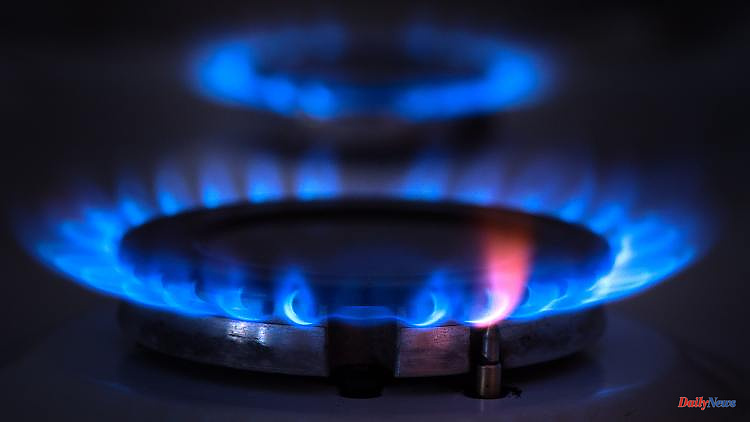The stock markets are not having an easy time this year: High price increases and fears of a recession spoil the mood of investors. But you can't do it without shares either.
1.99 euros for 200 grams of vine tomatoes at the discounter, i.e. almost ten euros per kilo, are no longer the exception. Despite the government discount, petrol costs more than two euros per liter. And gas suppliers have said they will double their prices this year, assuming they can deliver at all in the fall or winter. Every consumer feels the pain of inflation. And there is no end in sight for the time being.
In the euro zone, consumer prices rose by 8.6 percent in June. Inflation was thus higher than it had been since the introduction of the common currency in 1999. Energy, food, alcohol and tobacco in particular have become much more expensive. In the USA, the inflation rate has recently even risen to more than nine percent. In Germany, the price increase has recently come back somewhat. But that was mainly due to the state fuel discounts and the 9-euro ticket for rail traffic, which are limited in time.
It is now entirely to be expected that the inflation rate will fall again somewhat. The price of oil, one of the main drivers of inflation, has risen by more than 40 percent over the past year. So it seems rather questionable whether the price of fossil fuels will increase by a further 40 percent in the next twelve months.
This is also likely to be unlikely because the global economy may be headed for a recession. The price of copper, which is considered a reliable economic indicator, points exactly to this. Since its last interim high in June 2022, it has fallen by more than 20 percent. In the past 30 years, whenever the copper price has dropped by at least 20 percent, there has always been a recession. The industrial metal is used almost everywhere in the economy. A scenario is thus emerging that consists of declining but persistently high inflation and a weak economy.
The American Federal Reserve will also play a decisive role in the framework conditions for the financial markets in the coming months. It has already raised key interest rates three times this year – most recently to between 1.5 and 1.75 percent. And Fed Chair Jerome Powell recently said that fighting inflation was his only goal, not his main one. Further rate hikes are therefore to be expected.
When interest rates rise, the real estate market comes under pressure. As a result, the wealth of the American consumer, also known as the Joe six-pack, is falling, at least on paper. The same happens on the stock markets, where every second US citizen is invested. In addition, inflation is currently outstripping wage increases, so real incomes are declining. The bottom line is that consumers' wealth is falling and they are earning less. No wonder consumer sentiment in the US is lousy.
For equity investors, the crucial question now is whether the economy will cool down, i.e. if growth will slow down but is still there, or whether there will be a recession in which economic output will fall. In the first scenario, a so-called soft landing, technology and growth stocks should outperform the market as a whole.
Because these shares have been punished much more severely than the rest of the market in the past few months. Since the companies in question will often only earn money in the future, they suffer much more clearly from the rising interest rates. Because their profits, which are only expected in a few years, are then more heavily discounted to their present value - the company is then worth less. If economic growth does not collapse, but only cools down, there is corresponding potential for recovery in the technology sector.
In the case of a soft landing, energy values would also be interesting. Because in this case the demand for oil and co. would not fall sharply, but the supply would remain tight due to a lack of investments in the past and the war in Ukraine. And banks would benefit from rising interest rates.
On the other hand, if a recession is really on the horizon, investors should position themselves with defensive and largely non-cyclical stocks. These typically include papers from the pharmaceutical, telecom and consumer staples sectors. Your products and services are needed even when the economy is shrinking.
Investors should not get out of the stock markets completely, because experience has shown that it is hardly possible to find the right time to enter when the markets are turning upwards again. Then investors are not there on the fixed trading days, which can hardly be made up for. Also, stocks deliver the highest returns over the long term. Finally, in a recession scenario, long-dated US government bonds are promising. These currently yield a return of around three percent. That would be far too much for a shrinking economy. Interest rates should fall and the corresponding prices should rise.
About the author: Oliver Zastrow works as a director at the independent asset manager Albrecht, Kitta












